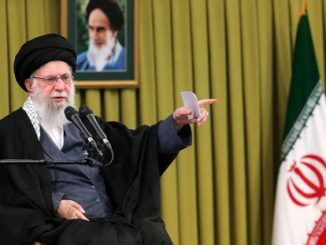
| Published June 23, 2025
New York, June 23, 2025 — In an emergency session of the United Nations Security Council, Russia’s UN Ambassador Vassily Nebenzia strongly condemned the United States for recent military strikes on Iranian nuclear sites, warning that such actions risk igniting a “Pandora’s box” of global instability. He labeled the strikes “irresponsible, dangerous, and provocative,” accusing Washington of prioritizing alliance politics over international security.
Nebenzia urged an immediate halt to aggressive operations by both the U.S. and Israel, and appealed for a return to diplomacy. He underscored that the escalation—especially potential attempts to target Iran’s Supreme Leader—could have dire and unpredictable consequences for the Middle East and beyond.
⚠️ Moscow’s Red Lines
-
Assassination risk: Kremlin spokesman Dmitry Peskov, echoing Nebenzia’s remarks, warned that any discussion or attempt to assassinate Ayatollah Khamenei would be “unacceptable” and would certainly open the geopolitical Pandora’s box .
-
Destabilization threat: Deputy Foreign Minister Sergei Ryabkov cautioned that U.S. military assistance to Israel—or direct involvement—would severely destabilize the region.
-
Nuclear peril: Spokesperson Maria Zakharova warned the world is standing “millimeters” from a potential nuclear catastrophe if hostilities escalate further.
🕊️ Russia’s Diplomacy Offer
Moscow reminded the U.S. and Israel that Russia has repeatedly offered to mediate the nuclear standoff, emphasizing the importance of dialogue over military confrontation . Ambassador Nebenzia made clear that the current Security Council emergency session was a response to the perceived global risk posed by the actions of Washington and Tel Aviv.
🎯 Strategic Gains and Setbacks
The U.S. and Israel’s coordinated strikes on Iran’s nuclear infrastructure delivered a clear tactical message: red lines exist, and they will be enforced. The destruction of centrifuge facilities at Fordow and Natanz temporarily disrupted Iran’s nuclear timetable and demonstrated the West’s continued military reach in the region.
However, the strategic picture is far more complex.
Gains:
-
Deterrence Signaling: The strikes reinforced the credibility of Western red lines and showcased coordination between Israel and the U.S., particularly under Trump’s renewed leadership.
-
Temporary Disruption: Satellite data and IAEA monitoring suggest centrifuge damage that may set Iran back by several months in uranium processing.
Setbacks:
-
Iran’s Defiance: Tehran’s vow to continue enrichment and its preserved stockpile of enriched uranium undermine the goal of halting its nuclear momentum.
-
Diplomatic Fallout: Russia’s sharp condemnation and warnings of “Pandora’s box” signal a widening geopolitical rift, with Moscow now casting itself as a peace broker.
-
Escalation Risk: Iranian retaliation via missile strikes and parliamentary moves to close the Strait of Hormuz escalate the risk of a broader regional war, threatening global oil flows.
 Bottom Line:
Bottom Line:
The strikes on Iran’s nuclear facilities may have delivered short-term tactical gains, but they also risk igniting a far broader crisis with no clear endgame. Iran’s defiance, Russia’s sharp warnings, and the heightened risk of regional escalation suggest that force alone cannot dictate the future of nuclear diplomacy. As global powers weigh their next moves, the real test lies not in firepower—but in whether restraint and strategy can still prevail before the Middle East crosses a point of no return.
SOURCES: DAILYMAIL ONLINE – Russia warns Trump he has opened ‘Pandora’s box’ with strike on Iran as regime holds talks in Moscow and fears grow that the UK will now face terror backlash
THE NEW YORK POST – Putin ‘very nicely’ wishes Trump a happy birthday, discusses Israel-Iran conflict during phone call





Be the first to comment